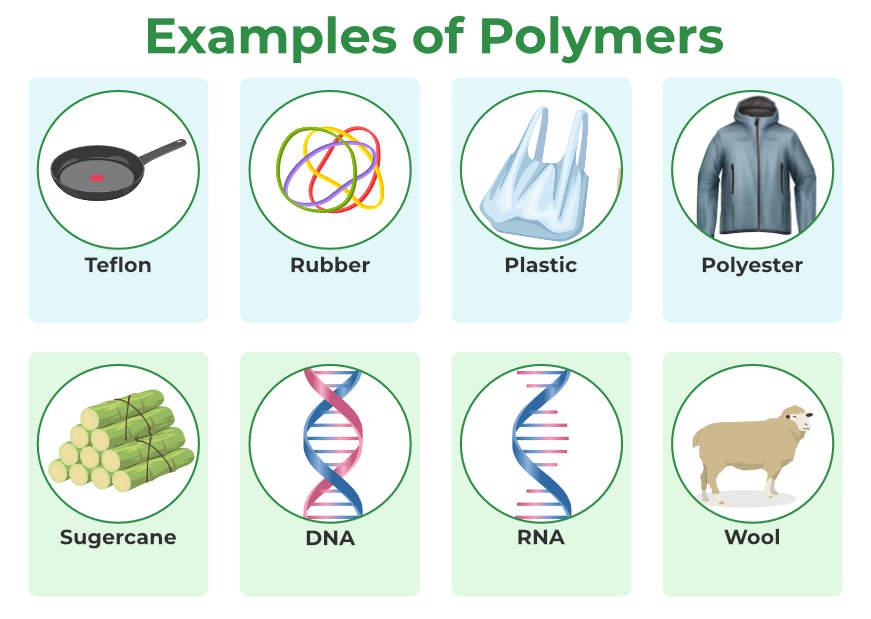Exploring the Varied Applications and Advantages of Polymers in Different Industries
Polymers, with their diverse variety of buildings and performances, have actually ended up being vital in numerous sectors, each gaining one-of-a-kind advantages from their application. From improving security and efficiency in the auto market to changing clinical devices in the health care market, polymers play a crucial role.
Automotive Industry Applications
Polymers play a critical role in boosting the performance and resilience of different parts within the vehicle industry. These versatile materials are thoroughly made use of in the production of various parts, varying from interior parts to under-the-hood applications. One famous usage of polymers in the vehicle sector is in the manufacturing of light-weight elements. By replacing traditional steel parts with polymer-based alternatives, vehicles can attain enhanced fuel efficiency without jeopardizing on stamina or safety.

Medical Care Market Benefits
In numerous healthcare applications, the benefits of using polymers are widely identified for their diverse series of advantageous homes. Polymers play a crucial function in the healthcare market because of their flexibility, biocompatibility, and cost-effectiveness. Among the key benefits of polymers in healthcare is their capability to be tailored to certain needs, such as flexibility, sturdiness, and biodegradability, making them optimal for a variety of medical applications.
Polymer-based products are extensively used in clinical devices, such as catheters, implants, prosthetics, and medicine delivery systems, due to their biocompatibility and ability to mimic natural tissues. These products can minimize the threat of allergies or beings rejected, enhancing patient safety and security and results. Furthermore, polymers are light-weight, making them appropriate for wearable clinical gadgets and ensuring client convenience.
Moreover, polymers make it possible for the development of innovative therapy methods, such as hydrogels for cells design and nanocomposites for targeted medicine delivery. Their convenience of processing and sanitation makes them necessary for preserving high requirements of hygiene in medical care setups. In general, the varied benefits of polymers contribute substantially to improvements in clinical technology and person care.
Environmental Advantages of Polymers

Additionally, polymers can contribute to power financial savings as a result like this of their lightweight nature. In sectors such as transportation, light-weight polymer materials can assist lower gas intake and greenhouse gas exhausts. In addition, polymers can enable the growth of energy-efficient products such as insulation products that improve energy preservation in buildings.
Additionally, polymers play a critical function in reducing water pollution. For instance, the use of polymer-based purification systems can effectively get rid of toxins and pollutants from wastewater, guarding water resources and ecological communities. Generally, the ecological advantages of polymers make them useful assets in advertising sustainability and green practices throughout various markets.
Polymers in Electronic Devices and Technology
Considering the increasing need for cutting-edge and sustainable services in contemporary markets, the combination of sophisticated polymer modern technologies in the world of electronic devices and innovation has actually arised as a pivotal method for driving efficiency and performance. Polymers have transformed the electronics industry by enabling the manufacturing of lighter, extra versatile, and sturdy digital tools. From smart devices to clinical devices, polymers play an important role in improving product style and performance.
One considerable advantage of polymers in electronics is their insulating homes, which assist safeguard delicate digital parts from ecological variables and electric disturbance. Additionally, polymers are vital in the development of flexible display screens, wearable technology, and printed electronic devices, offering visit this site right here endless possibilities for developing clever and interconnected devices.
Furthermore, using polymers in electronic product packaging has actually brought about improvements in miniaturization and thermal monitoring, enhancing the overall efficiency and integrity of electronic systems. As technology continues to advance, the adaptability and versatility of polymers will unquestionably drive further innovation in the electronic devices industry, forming the future of technology.
Duty of Polymers in Building and Facilities
The combination of innovative polymer products in building and construction and infrastructure projects has actually revolutionized the method structures are designed and constructed in modern-day times. Polymers provide various benefits in the building and construction market because of their flexibility, durability, and cost-effectiveness. One key function of polymers in building try this out is their use in coverings and sealants, supplying defense against ecological variables such as moisture, UV radiation, and rust. Additionally, polymers are made use of in the production of light-weight and high-strength composite materials, boosting the architectural stability of structures while decreasing general weight.
Furthermore, polymers play an important function in sustainable building methods by allowing the advancement of energy-efficient structures. Protecting products made from polymers help regulate interior temperature levels, decreasing the demand for home heating and cooling systems and eventually lowering energy usage. The use of polymer-based composites in facilities projects such as bridges and roadways enhances their durability and reduces upkeep costs. Overall, the consolidation of polymers in building and framework showcases their considerable influence on modern design techniques.
Verdict
In conclusion, polymers play an essential function in numerous industries such as automotive, health care, ecological, electronic devices, and building and construction. From improving fuel effectiveness in automobiles to improving medical tools, polymers provide numerous advantages.